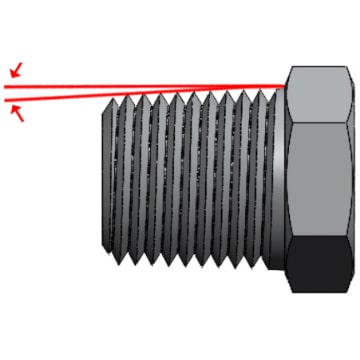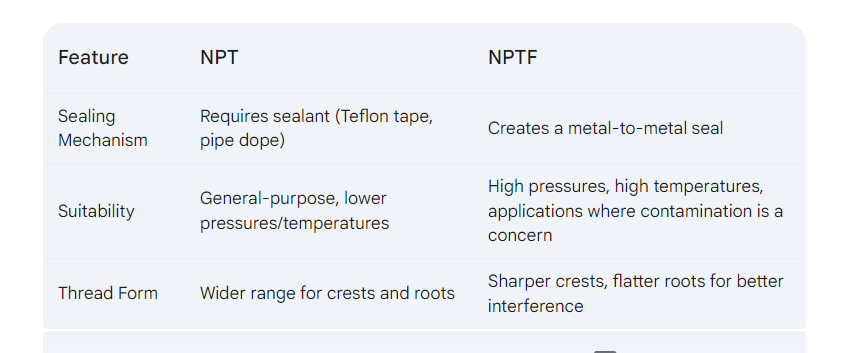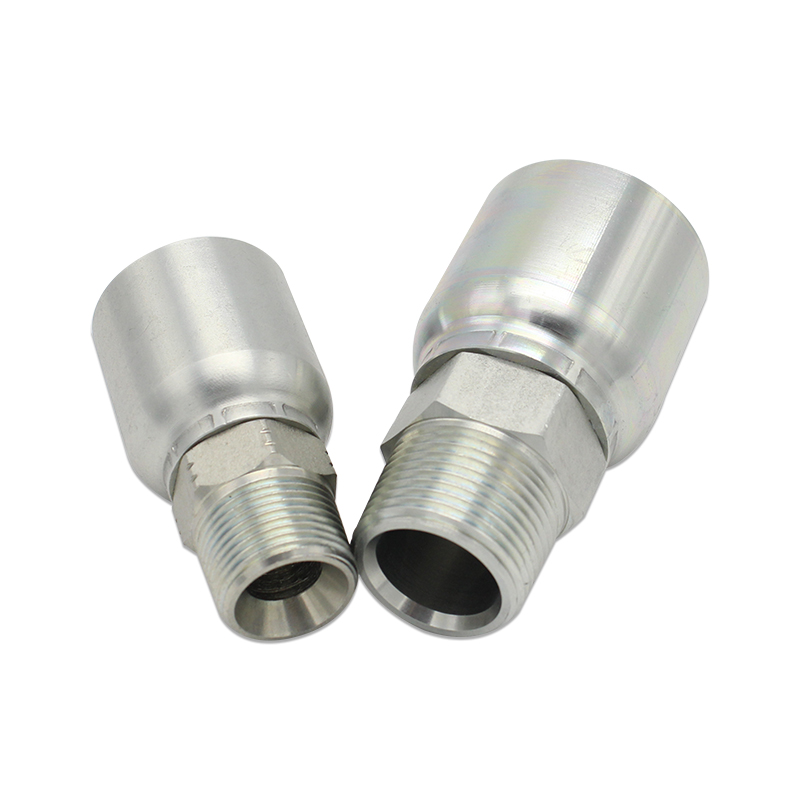What Is the Difference Between NPT and NPTF Thread?
NPT and NPTF threads are both tapered pipe thread standards used to create leak-proof connections, but they differ in their sealing mechanism:

NPT (National Pipe Taper): This is a general-purpose thread that relies on a sealant, like Teflon tape or pipe dope, to achieve a leak-proof seal. The threads themselves create a tight joint, but the sealant fills any microscopic gaps and prevents leakage.
NPTF (National Pipe Taper Fuel): This is a dryseal thread, designed to form a mechanical seal without needing any additional sealant. The key difference lies in the thread's root and crest. NPTF threads have slightly sharper crests and flatter roots compared to NPT. When tightened, these deformations create a metal-to-metal seal for a more robust leak-proof connection. NPTF threads are further classified into two classes:
Class 1: Offers a tighter seal for higher pressures.
Class 2: Provides a good balance between seal strength and ease of assembly/disassembly.
Here's a quick comparison:


In short, use NPT for general applications where a good seal with sealant is sufficient. Choose NPTF for high-pressure, high-temperature scenarios, or when you want to avoid sealant contamination.
Janet Yao
Email: ps005@parshun.com
Whatsapp: +86-136-6663-2043

Passion Hose founded in 2007, a professional silicone hose manufacturer, a brand of pipeline hose and accessories R&D, production and sales. Main products: stainless steel shower hose,hydraulic hose, industrial hose, automotivehose, plumbing hose etc., which are widely used in home, hotel, industry and other fields.
Quick Links
Products
If you have any question, please contact us.
Email: ps1@passioncohose.com
Tel: +86-136-6663-2043
Whatsapp: +86-13666632043
Add: B-101, Hangzhou Smart Industrial Park, No. 857, Wenyixi Rd. Hangzhou, 310030, China


















